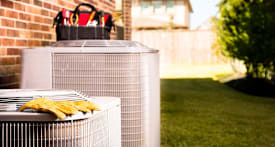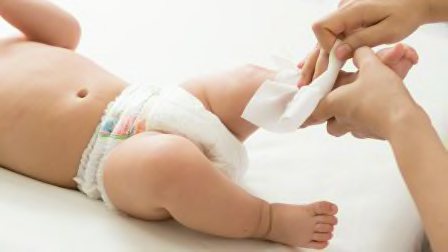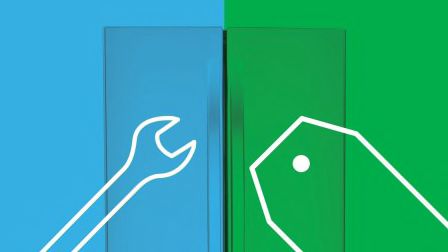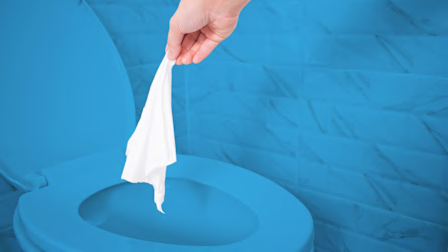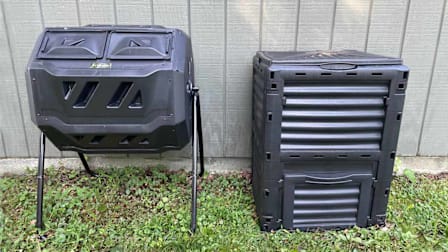Smarter: ♻️Which Plastics Are Actually Recyclable?
In a perfect world, all the plastics we put in our recycling bins would get recycled, but (spoiler alert!) we don’t live in a perfect world. This week, I’m examining an uncomfortable truth about plastics, namely, how only certain plastics really get recycled, and the do’s and don’ts of recycling. I’m also going to talk about why you shouldn’t store your fire extinguisher under a sink and have you guess which state has accumulated the most trash in its landfills.
THE BIG STORY:
“I Was Doing Recycling All Wrong”The time: That inevitable moment every month when your fridge forces you to do a reality check.
The scene of the crime: A fridge half-excavated. A kitchen littered with leftovers in various stages of metamorphosis.
The suspect: Me, disgusted, staring at a takeout container with contents that have gone past the food stage and are now squarely in the surreal stage. Mold has laid claim to my once-lunch, made a whole thriving civilization out of it, really, and its smell is, to put it in one word, memorable.
DOUBLING DOWN
We now know that we shouldn’t be tossing every plastic product into recycling willy-nilly, but what are some other missteps we should avoid in our recycling?
1. The plastic bag problem. One thing you shouldn’t be doing is putting plastic bags in your curbside recycling bin, because grocery or produce bags and bubble wrap can’t be recycled in residential recycling facilities, says Walters from Republic Services.
And if your local government hasn’t specified that you should put your recycling in plastic bags, it’s best to avoid doing so, as the bags often cause problems to the equipment in recycling facilities, says Enck of Beyond Plastics.
What to do instead: When it comes to bagging your recycling, consult the regulations of your municipality. And for the recycling of plastic bags, check your grocery store to see if it has collection bins for plastic bags, as the recycling of these materials requires a special commercial process.
You can also take your bags to a drop-off location in your neighborhood, says Perry Santanachote, a CR writer who covers recycling and whose passion for the subject has her re-sorting the contents of her apartment building’s recycling bins every time she takes out the trash.
2. Not keeping it clean. Having leftover food and liquid in your plastic containers not only is unpleasant but also might make your plastics unfit for recycling. It’s worth noting that recycled goods are a marketplace, Santanachote says, and any product that is contaminated is going to sell for a lot less or not at all.
What to do instead: Always remember to empty and rinse your recycling before you place it in the bin.
While it’s important to recycle the right way, perhaps the most powerful thing we can do as consumers is cut down on the use of plastic to begin with. Here are some first steps to take if you want to quit plastic and reduce your environmental impact.
QUIZ
I don’t like to trash-talk people, but I don’t mind trash-talking entire states. Between you and me, which state do you think has accumulated the most trash in its landfills on a per capita basis?
A. Texas
B. Michigan
C. Nevada
D. California
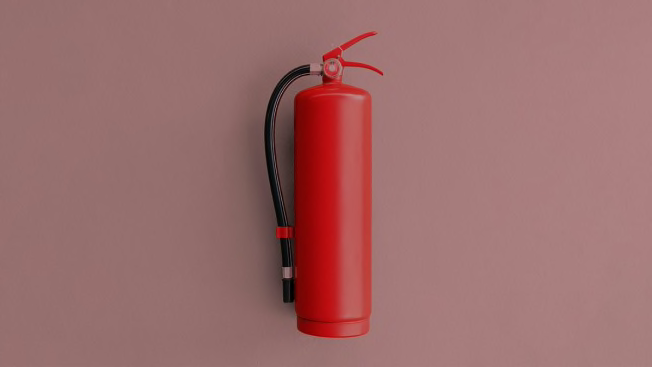
Photo: Getty Images Photo: Getty Images
DID YOU KNOW THIS?
Today I learned that you shouldn’t store your fire extinguisher under your sink, even though it might seem like a convenient place, because water leaks could damage the device. Not to mention you wouldn’t want to rummage through a mess of cleaning supplies when you’re trying to retrieve your fire extinguisher.
Here are some other things you might not know about your fire extinguisher:
🧯tip: Fire extinguishers have life expectancies, and you should replace them after about 12 years.
🧯tip: Keep the fire extinguisher near your stove but not right next to it. Why? Because if smoke or fire is coming out of the stove, it might block your access to the fire extinguisher.
ASK AN EXPERT
Question:
“If my phone ever goes missing, what should I do?”
Answer:
A few years ago I lost my phone in a New York subway station, and while I was fortunate enough to retrieve it hours later from a kind stranger who had found it (who said New Yorkers aren’t nice? I know, well, one person who is), not everyone gets so lucky when their phone is lost.
If your phone has gone missing either from loss or theft, don’t panic. Here are the steps you should take, according to Melanie Pinola, a CR tech writer whose very first smartphone was
impressively a Nokia 9000 Communicator (remember those chonky things?).
1. Find it. Well, duh, you might say, but this step is important. If calling your phone or texting it doesn’t help you find it, log on to your Find My Phone service, if you’ve set it up. For an iPhone, go to iCloud Find My iPhone. For an Android phone, go to Google’s Find My Device.
If your phone is still nearby, the service can make it play a sound that’ll help you locate it. You can also use the service to lock your phone screen and display a message that contains your contact information in case someone wants to return your phone to you.
And if you’re afraid of the phone falling into the wrong hands, you can use the service to erase your phone’s data remotely.
2. Report your loss. Let your service provider know immediately so it can suspend service for anyone who’s trying to use your phone on its network. You can notify your mobile carrier by logging on to its website or app, going to one of its stores, or calling to speak to a representative.
3. Change passwords. Even if service is suspended, your phone will still be usable over WiFi. It’s therefore crucial that you change the passwords of every account you have on your phone. Start with your email and any financial or shopping accounts that have your credit card on file and then move on to your social media accounts.
4. Notify the police. If you have an insurance plan on your phone, reporting to the police will help you expedite the process of filing an insurance claim. And in case you need to dispute any fraudulent credit card charges from the stolen phone, you’ll likely need a police report as well.
All in all, it sucks to have your phone be missing, but these steps might make the ordeal a little bit less of a nightmare.
If you have a question you want to ask an expert, email me. I’m all ears!
THE SHORT ANSWER
🚗 Should you top off your car’s gas tank? Nope.
THE GOOD STUFF
🏋️ The things we do for work.
QUIZ ANSWER
The answer is Michigan. The Midwest state has accumulated the largest amount of trash in its landfills, at more than 62 tons of trash per person as of 2019. Just for perspective, 62 tons is almost 10 times as heavy as a male African bush elephant, which weighs around 13,000 pounds, and 30 times as heavy as a car, which averages just over 4,000 pounds. In plain English: That’s a whole lot of trash.
"Sorry, Michigan, I’m sure you’re a very nice state on the … outside?"
• Email me with any questions and tips.
• Want more? Sign up for these other CR newsletters.











